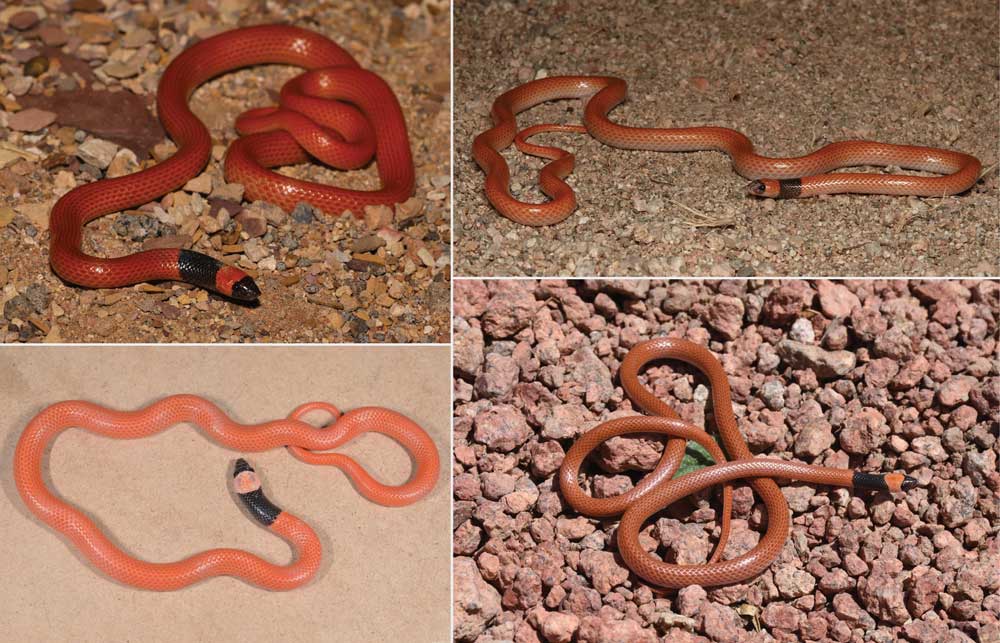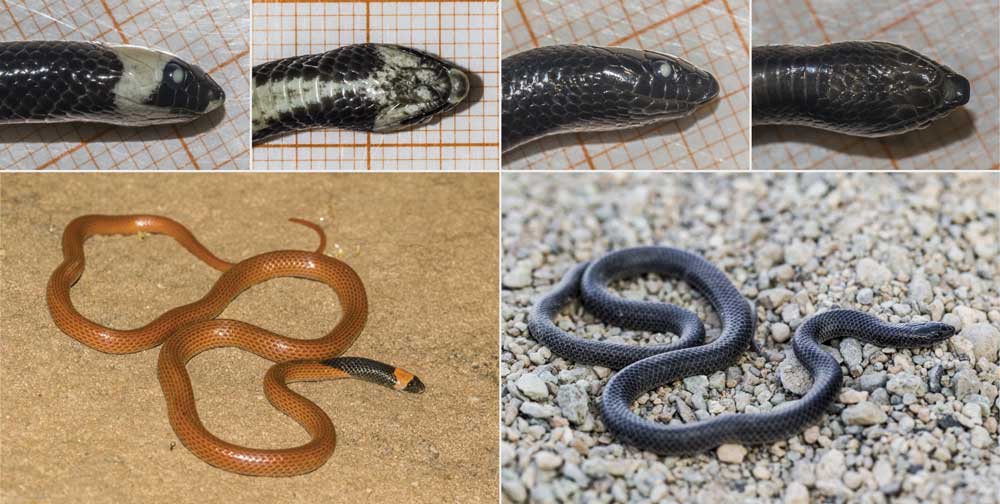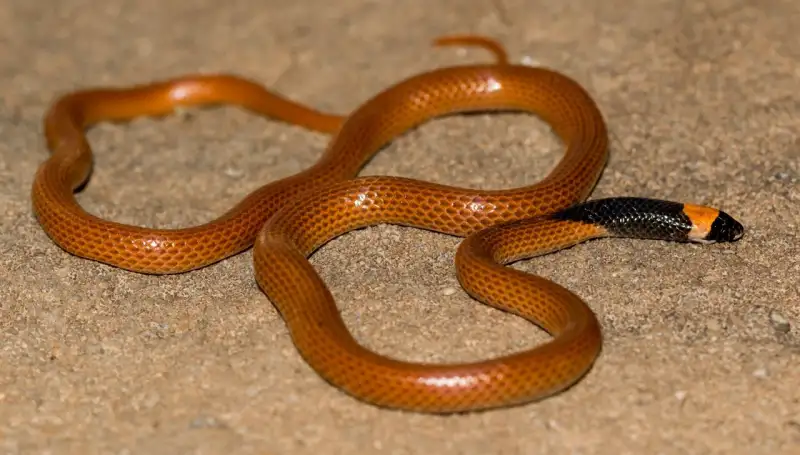The small snake is found in sandy and stony soils with some vegetation as well as areas disturbed and inhabited by humans.
A new snake species of the genus Rhynchocalamus has been discovered in Saudi Arabia and it is a stunner. While the snake has a distinctive head that appears as if dipped in black paint, the area behind the eyes is a coloration that matches that of the rest of the body. In addition, Rhynchocalamus hejazicus can appear orange, red and even a reddish brown in coloration. And a uniformly black melanistic morphotype has also been found.

Colour variation within R. hejazicus sp. nov. (or its lack, thereof). Top row: two unvouchered specimens from NEOM, Tabuk Province, KSA (photo credit: Euan Ferguson and Neil Rowntree); bottom left: paratype NMP 76815 (sample code LP760, photo credit: DME); bottom right: paratype MNHN–RA–2023.0013 (sample code JIR544, photo credit: Adel A. Ibrahim.
It fills a niche between the Levant to the coastal regions of Yemen and Oman, according to a press release by Pensoft Publishers. The team who describe the new species is from the Centro de Investigação em Biodiversidade e Recursos Genéticos (CIBIO), Portugal, and Charles University, Czech Republic, the researchers wrote.
Herping The Kingdom of Saudi Arabia
Call Sign: Critter Getter– Finding Reptiles During Operation Iraqi Freedom
The small snake is found in sandy and stony soils with some vegetation as well as areas disturbed and inhabited by humans, large stony wadis in lava fields that have dense patches of vegetation, and sparsely vegetated rocky creeks with temporary pools, the researchers noted in their paper. The researchers believe that the snake is nocturnal as they were all found active at night. The researchers collected field samples in Saudi Arabia in 2017, 2021, 2022, and 2023 in Hail Province, the Prince Mohammad bin Salman Royal Reserve (PMBSRR), Tabuk Province, AlUla County (Medina Province). The researchers propose to classify Rhynchocalamus hejazicus as a species of least Concern.

Holotype (RCU-URN-93850, sample code FLI447, bottom left) and paratype (RCU-URN-94064, sample code FLI330, bottom right) specimens in life. Lateral and ventral views of their heads (above each life picture). Photo credit: Fulvio Licata
The paper describing the new species, “The missing piece of the puzzle: A new and widespread species of the genus Rhynchocalamus Günther, 1864 (Squamata, Colubridae) from the Arabian Peninsula,” can be read on the Zoosystematics and Evolution website.
The authors are Fulvio Licata, Lukáš Pola, Jiří Šmíd, Adel A. Ibrahim, André Vicente Liz, Bárbara Santos, László Patkó, Ayman Abdulkareem, Duarte V. Gonçalves, Ahmed Mohajja AlShammari, Salem Busais, Damien M. Egan, Ricardo M. O. Ramalho, Josh Smithson, José Carlos Brito.


